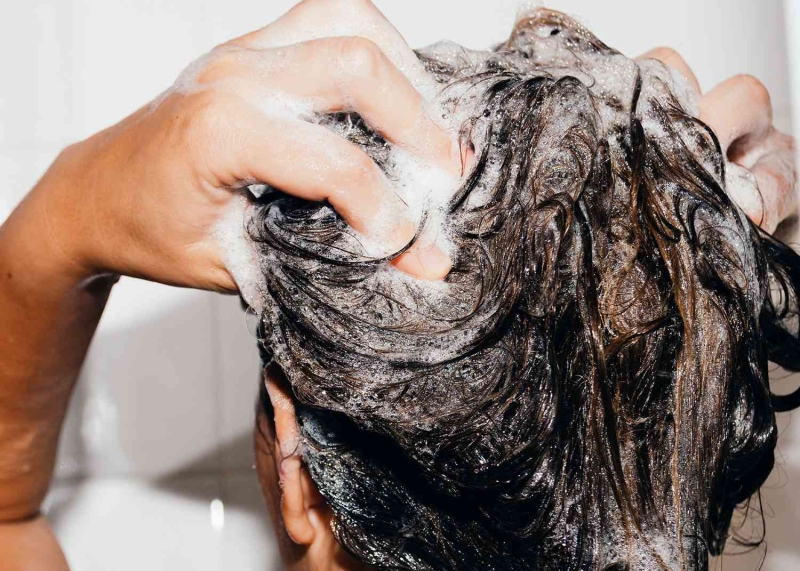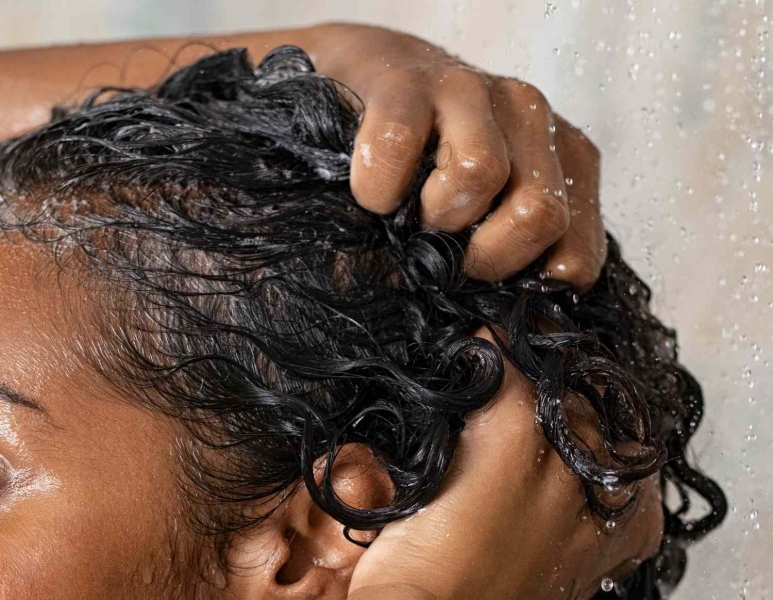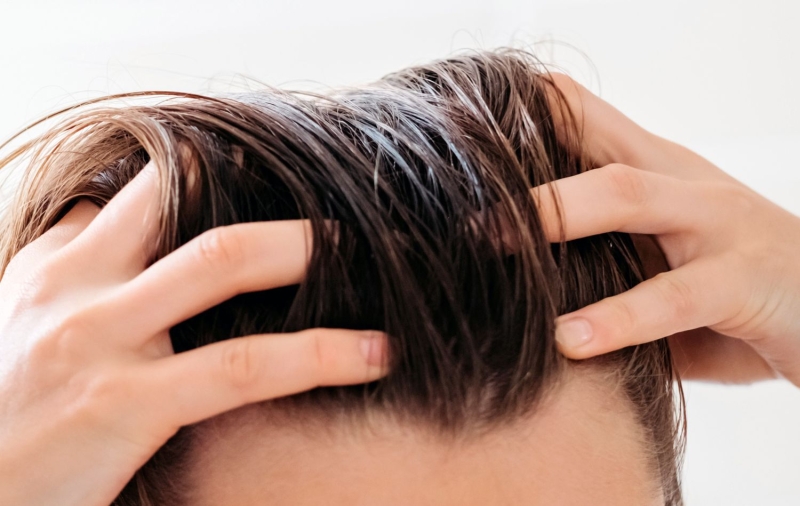Contents
Two hair experts reveal the importance of a clean scalp.

If you’ve always dreamt of having long, voluminous strands, chances are you’ve tried more than a few hair-care products, tools, and accessories to get the look. From biotin gummies and clip-in extensions to anti-breakage styling sprays and root-boosting hot tools (hello, VOLOOM!), many products exist to help create the hair of our dreams.
Meet the expert
- Anabel Kingsley is the Philip Kingsley brand president and consultant trichologist.
- Neera Nathan, MD is a board-certified dermatologist and Vegamour ambassador.
But could we be overthinking it? Sure, if instant length and lift are the goal, instantly gratifying products are required, but if naturally longer, fuller hair is the goal, it could be as simple as committing to a well-thought-out wash routine and being patient in the process.
Wash Routines and Hair Growth
How often we wash our hair has been a hot topic for years now. Where some people refuse to wash their hair more than once a week (under the guise that regular shampooing is bad for your hair), others (particularly those with fine hair) can’t imagine not washing their hair every day, thanks to how oily it can look mere hours post-wash. So, what’s the consensus? Can your wash routine really affect your hair’s overall length and health?
“As a rule of thumb a clean scalp is more than likely to be a healthy scalp,” says Philip Kingsley brand president and consultant trichologist Anabel Kingsley. And a healthy scalp is more likely to produce long, full, healthy-looking hair. “Your scalp is the bedrock of healthy hair growth so taking care of it and shampooing regularly is essential,” she says. “A clean, balanced scalp environment gives your follicles the best chance to flourish.”
Now we know what you’re thinking: Can’t regular shampooing cause dullness and faded color? Not necessarily. That’s because, as board-certified dermatologist and Vegamour ambassador Neera Nathan, MD points out, some shampoo seshes can be tailored to focus on your scalp, as opposed to your strands. “Scalp is skin and needs to be washed regularly for healthy hair growth because the hair roots reside within the scalp below the skin surface,” she explains. So, while you might not want to suds up your hair from roots to ends every other day, refreshing your scalp with shampoo can be helpful.
Still not sure you want to increase your wash routine? According to Kingsley, when you forgo shampooing regularly, oils, sweat, dirt, and dead skin cells can build up and create a breeding ground for scalp-disrupting, follicle-clogging bacteria. “This can impact the strength and quality of the hairs that then grow, and you may develop scalp issues such as dandruff,” she explains.
Wash Frequency and Hair Type

Now that you understand how a clean scalp impacts hair growth, it’s time to nail down the logistics because not all hair types require the same TLC.
“It's not practical for some hair types to wash as frequently as others,” Dr. Nathan says. For straight, fine, or wavy hair, Dr. Nathan recommends shampooing at least once a week; for textured or coily hair, she says shampooing at least once every two weeks is key. “If [you’re] wearing a protective style that can't be washed as often, there are leave-in clarifying treatments that can be used directly on the scalp to help cleanse/exfoliate without washing,” she adds.
The way Kingsley sees it, you shouldn’t go more than four days without shampooing your hair.
“After all your scalp is skin, and you wouldn’t go longer than that without washing your face or body,” she points out. And if you have fine hair, she says you’ll likely want to wash it well before the fourth day. “People with fine hair often have more hairs per square centimeter of scalp due to the smaller strand diameter,” she explains. “As every hair follicle is attached to an oil gland, fine hair therefore tends to get oiler faster than any other hair texture and usually needs [to be washed daily] to cleanse away excess oils.”
Frequent Shampooing and Hair Loss
If you don’t regularly shampoo your hair, you may not be accustomed to seeing strands build up in your shower. As such, you might think that the increase in shampoo is causing hair loss but that’s not the case.
“Contrary to popular belief, shampooing more frequently will not cause an increase in hair loss,” Kingsley assures us. “People are often scared to increase their shampoo frequency due to the amount of hairs they see shed when in the shower. However, it is important to realize that these hairs are already disconnected from the blood supply at the follicle and the act of shampooing is simply dislodging them from the follicle, they are already ready to fall.”
With that in mind, Kingsley says that it is perfectly normal to lose around 100 hairs per day. “The longer you leave it between washes will mean an accumulation of this daily rate of shedding,” she points out. So unless you’re noticing bald spots or serious thinning once your hair is dry, there’s nothing to be concerned about.
Other Ways to Boost Hair Growth

While regular shampooing is an essential component of scalp care and thus directly affects hair growth, simply increasing the rate at which you wash isn’t going to create ultra-noticeable results right off the bat—it’s more of a long game. There are some haircare products, however, that can offer amplified benefits sooner rather than later.
For starters, Dr. Nathan says opting for shampoo, conditioner, and hair treatments with growth actives like biotin and caffeine can help. For a deliciously scented, growth-boosting wash routine, try the Vegamour GRO Revitalizing Shampoo and Conditioner Kit ($96).
You can also address your hair health from the inside out. “A lot to do with hair growth is about what is happening internally in our bodies,” Kingsley says. “Nutritional factors can really [affect] our hair health and growth and therefore it is important to optimize the vitamins and minerals essential for healthy hair growth.”
The way you style your hair can also affect how healthy it looks. “Often I hear clients complain that their hair isn’t growing, when in fact it is growing at the root, but they have overlooked that it is snapping off at the ends,” Kingsley says. “To improve hair strength and resistance to breakage I’d recommend using pre-shampoo treatment masks that help with bond repair and moisture intake.
Another way to avoid breakage is to be more mindful of your go-to hairstyles. “I recommend avoiding wearing tight hairstyles for more than three to four hours at a time, and minimizing excess heat styling or chemical hair treatments can help support healthy hair growth, too,” Dr. Nathan says. Sleeping on silk pillowcases, like the Slip Seashell Queen Zippered Pillowcase ($89), can prevent breakage, as well.

